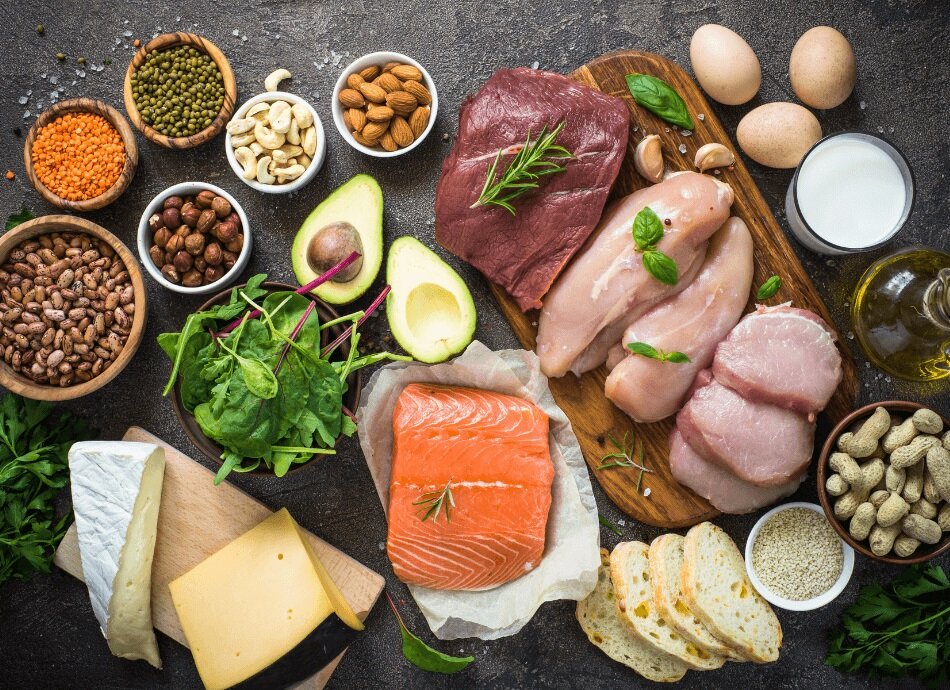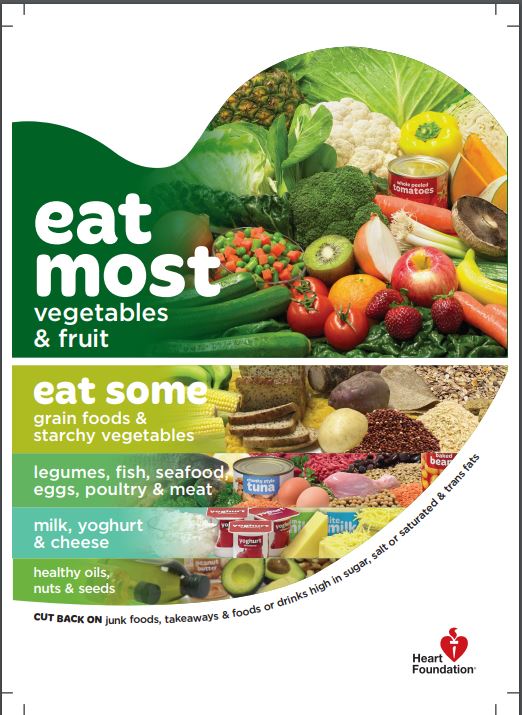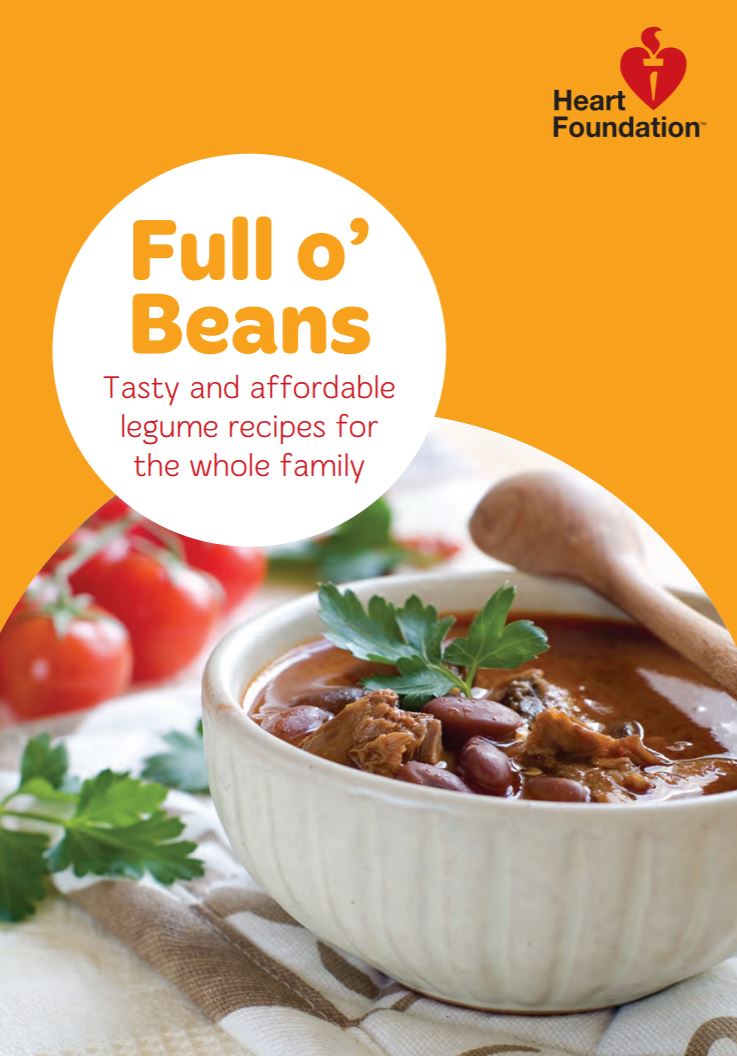Protein is a macronutrient (as are carbohydrates and fats). It's required to fuel your body and provide you with energy. Proteins can be found in either animal or plant sources. They are made up of different combinations of 20 amino acids, 9 of which your body cannot make itself. That means they are essential to get from the food you eat.
Low or no data? Visit zero.govt.nz, scroll down the page then click on our logo to return to our site and browse for free.
Proteins
Key points about protein foods
- Protein is one of the 4 main food groups.
- It is important for the growth and repair of your body at all stages of life.
- High protein foods include legumes, nuts, seeds, fish and other seafood, eggs, poultry and/or red meat with the fat removed.
- Many of the foods in this group are also good sources of iron.
- Eating too much protein can be expensive and cause health problems, especially for people with kidney or liver diseases.

Protein is essential for your health, including growth and development, supporting your immune system and acting as the building blocks of bone, muscle, skin and blood.
Not having enough protein in the food you eat can lead to muscle wasting (including damage to your heart) and damage to your liver, pancreas and gut. Your immune system and a child's developing brain can be affected too.
For a healthy person, eating too much protein isn’t that much of a problem. However, it may mean you're likely to eat less of other foods that you should be eating to stay healthy, (eg, wholegrains, vegetables and fruits). For people with kidney or liver disease, too much protein is not advised.
If you're eating a high protein diet for weight loss, you are less likely to eat vegetables and more likely to eat foods that contain fat. This could have an effect on your kidney function (leading to kidney stones) and your bones (where calcium may be excreted in high amounts). It may also increase your risk of heart disease and certain cancers.
Protein is found in:
- legumes, nuts and seeds
- fish and other seafood
- eggs
- lean meat and poultry
- dairy products – milk, yoghurt, cheese.
Most New Zealanders get enough protein. However, some people have higher requirements, including:
- pregnant women – especially in the last trimester, to meet the demands of the growing baby
- toddlers, children and teenagers – to support rapid growth
- athletes and sportspeople – who may need extra protein to support muscle repair
- people over the age of 70 years – who need extra protein to prevent risk of muscle and bone loss.
|
Age, gender or stage |
Recommended number of protein servings per day |
|
Men 19–50 years old |
3 |
|
Men 51 years old and above |
2.5 |
|
Women 19–50 years old |
2.5 |
|
Women 51 years old and above |
2 |
|
Pregnancy |
3.5 |
|
Breastfeeding |
2.5 |
|
Children 1–3 years old |
1 |
|
Children 4–8 years old |
1.5 |
|
Children 9–18 years old |
2.5 |
|
Serving size examples |
|
- If a protein contains all 9 essential amino acids, it’s called a complete protein. These foods come mainly from animal sources such as red meats, poultry, eggs and dairy. However, soy and quinoa are also complete proteins.
- Although most plant proteins are incomplete individually, when eaten in combination, they can provide all 9 essential amino acids. So combine lentils, beans and chickpeas with grains, nuts and seeds to get complete protein.
- Eating patterns that include legumes, nuts, fish and other seafood are linked with a lower risk of heart disease, type 2 diabetes, weight gain and some cancers.
- Low iron levels are a problem for some New Zealanders, particularly young women. Red meat is an excellent source of iron and zinc, but it is recommended you eat less than 500 g of cooked red meat (750 g when raw) to reduce the risk of colorectal (bowel) cancer.
- Eating processed meat (eg, salami, bacon, ham and luncheon) can be high in fat and salt and is also linked with a higher risk of bowel cancer.
Here are some tips on how to include more protein in your diet:
- Fill half your plate with colourful vegetables or salad, a quarter with wholegrains or carbohydrates and a quarter with foods from this group.
- Lean meats are better for you. Cut off the fat you can see and take the skin off chicken before you eat it. Meats like mince and sausages can be high in fat so eat these less often and take steps to reduce the fat when you do have them, brown the mince then drain off the fat and grill sausages so the fat drips away.
- Add lentils, chickpeas or kidney beans to dishes like spaghetti bolognaise, casseroles, stews and winter soups to fill them out and reduce the amount of meat you need.
- Add lentils, chickpeas and beans to salads so they are more filling.
- Use canned chickpeas to make hummus, which can be used as a healthy dip or can be added to sandwiches, salads or eaten as a snack with crackers or chopped up vegetables.
- Add ricotta or low fat cottage cheese into pasta sauces, mashed potato or scrambled eggs.
- Add Greek yoghurt to cereal, fruit or a bowl of soup.
New Zealand eating and activity guidelines(external link) Health New Zealand | Te Whatu Ora
Recipes(external link) I Love Eggs, NZ
Resources
Healthy Heart Visual Food Guide Poster(external link) Heart Foundation, NZ
Full of beans(external link) Heart Foundation, NZ, 2018
Ngā MītiHe Kai Reka! Easy meal ideas for getting more iron(external link) Beef + Lamb NZ
High protein supplements(external link) Health Promotion Agency, NZ, 2019
Brochures

Heart Foundation, NZ

Heart Foundation, NZ, 2018
Credits: Healthify Editorial Team. Healthify is brought to you by Health Navigator Charitable Trust.
Reviewed by: Amanda Buhaets, Auckland DHB Liaison Dietitian and Julie Carter, Auckland DHB Liaison Dietitian
Last reviewed:
Page last updated:





